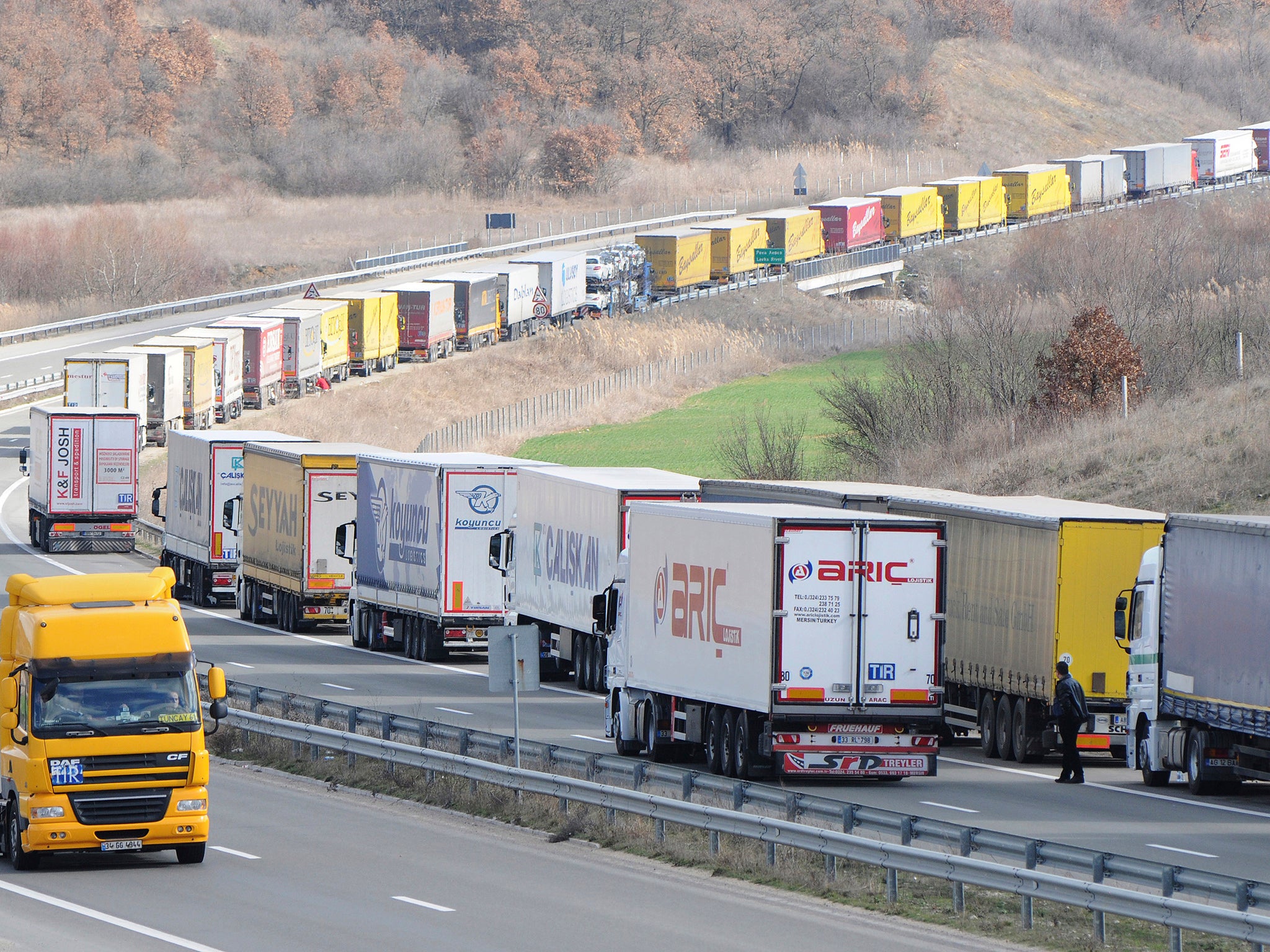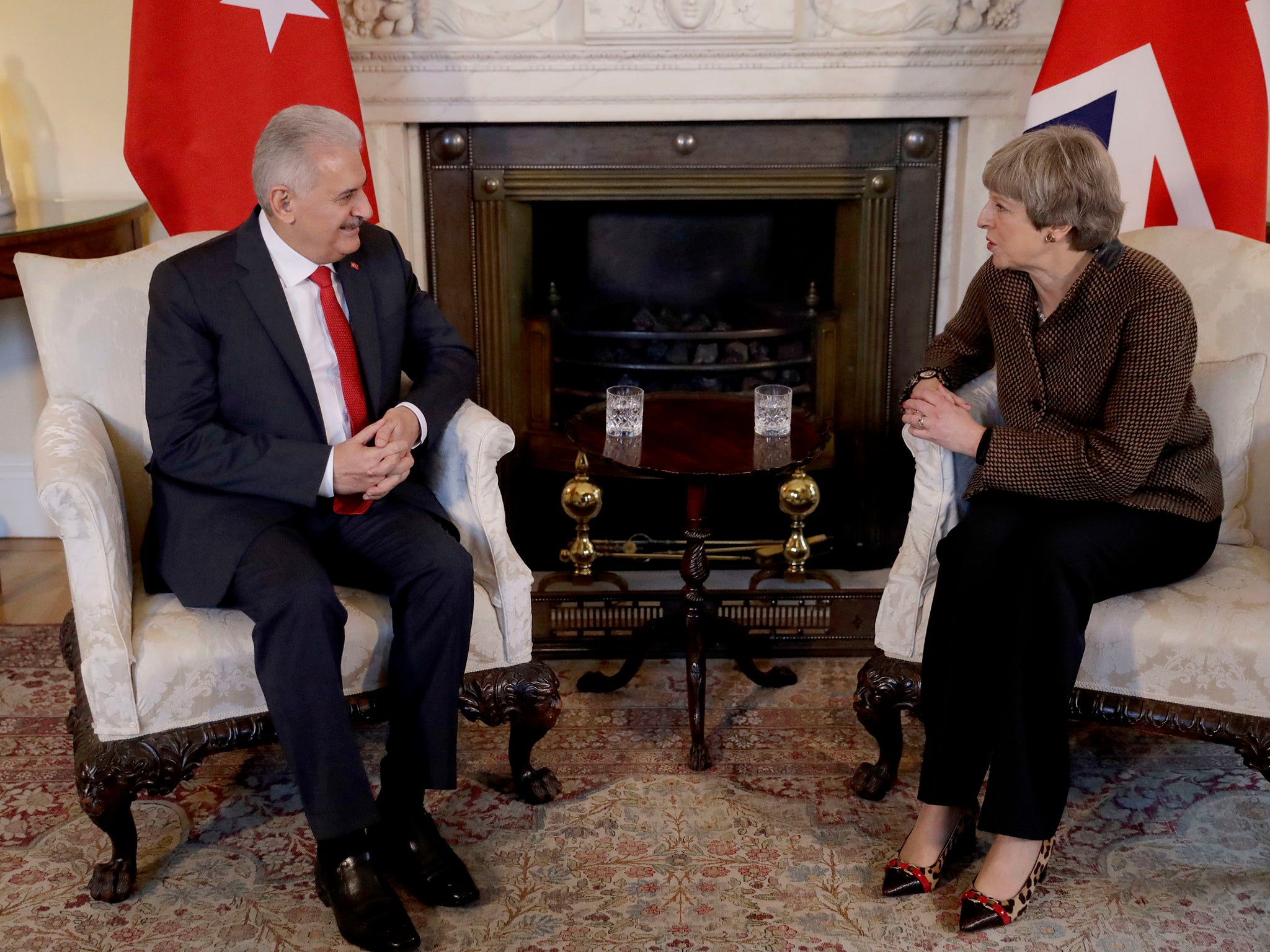Brexit queues: Turkey warns of traffic chaos at borders as UK faces same trade rules
Turkish Prime Minister says transport companies went to court because of 30-hour tailbacks due to Turkey's EU status

Your support helps us to tell the story
From reproductive rights to climate change to Big Tech, The Independent is on the ground when the story is developing. Whether it's investigating the financials of Elon Musk's pro-Trump PAC or producing our latest documentary, 'The A Word', which shines a light on the American women fighting for reproductive rights, we know how important it is to parse out the facts from the messaging.
At such a critical moment in US history, we need reporters on the ground. Your donation allows us to keep sending journalists to speak to both sides of the story.
The Independent is trusted by Americans across the entire political spectrum. And unlike many other quality news outlets, we choose not to lock Americans out of our reporting and analysis with paywalls. We believe quality journalism should be available to everyone, paid for by those who can afford it.
Your support makes all the difference.Turkey’s prime minister has warned of the “long queues” his country’s trucks face trying to cross into the European Union, under rules that could be forced on Britain after Brexit.
Interviewed by The Independent, Binali Yıldırım revealed that Turkey’s transport companies went to court because of the tailbacks and the big costs they had run up.
The problems arise despite Turkey being in the EU customs union, because – like Theresa May’s plan for Brexit – it does not have free movement of people and is outside the single market.
“There are sometimes long lines, long queues – that is right,” Mr Yıldırım said.
And he added: “Unfortunately, certain practices of the customs union, certain advantages of the customs union, were not offered to Turkey for years. Turkey was disadvantaged.
“There is no free circulation of people – there is no free circulation of goods either. These are things that are important for Turkey.”
Mr Yıldırım blamed Bulgarian “practices” for the long border queues, but added: “Unfortunately, the EU is acting way too slow in this area.”
The comments come as the controversy over the future Irish border rages, with ministers facing down calls from the Irish Government to soften its Brexit stance.
Instead, the Government has insisted Britain will leave both the single market and the customs union – although it will seek identical arrangements in a two-year transition period, after March 2019.
Turkish lorry drivers have protested at queues of anything between 4 km and 17 km (10.5 miles) at Bulgarian checkpoints, forcing them to wait up to 30 hours to get through.
Each driver requires an export declaration, invoices for the products they are carrying, insurance certificates and a transport permit for each EU nation they will drive through.
The bureaucracy is the result of the EU, so far, only granting the right of lorries to move freely if there is also an agreement on the free movement of people.
Open-access road transport deals have been agreed with Norway and the other members of the European Economic Area (EEA), but Britain has insisted it will not join the group.
Instead, ending free movement is a “red line” for Ms May in the Brexit talks, with tough immigration restrictions planned for when any transition period ends.
Furthermore, say critics, the UK could be heading for a worse deal than Turkey, because it is seeking some sort of associate membership of the customs union – not full membership.

Ankara has given up its right to set its own external tariffs in trade deals, but Britain is thought unlikely to do the same.
Speaking to journalists in London, Mr Yildirim said Britain and Turkey had begun work on a post-Brexit free trade agreement, by setting up a working group.
Preparations would take place "in parallel" with the Brexit negotiations, he said, but acknowledged a deal could not be finalised until the UK had actually left the EU.
Mr Yildirim dismissed suggestions that Turkey would be prevented from striking its own trade deal with the UK by its membership of the EU customs union.
“Once the UK moves out of the EU, the UK will belong to the same club as Turkey,” he said.
“The world is not only made up of the EU. Turkey has free trade agreements with a number of other countries. Forging these agreements does not mean a contradiction with our relations with the EU.”
Join our commenting forum
Join thought-provoking conversations, follow other Independent readers and see their replies
Comments